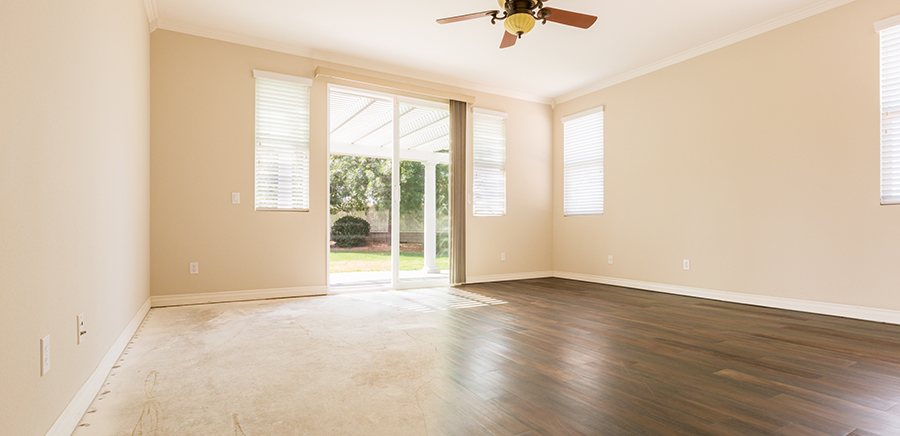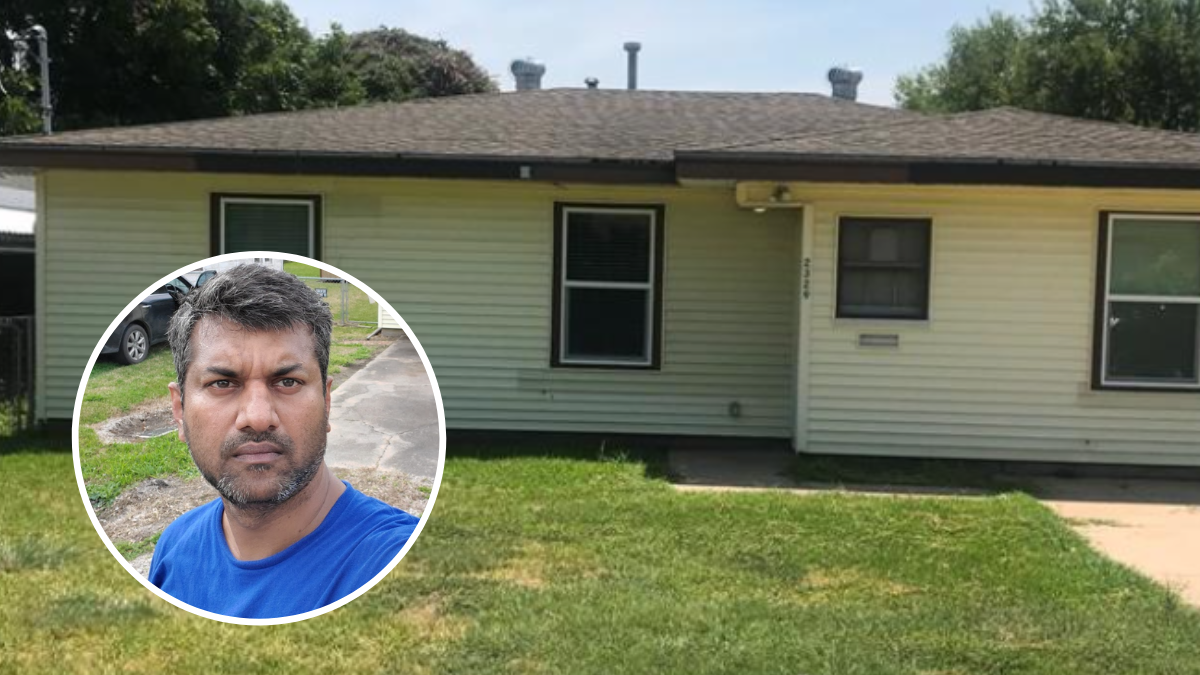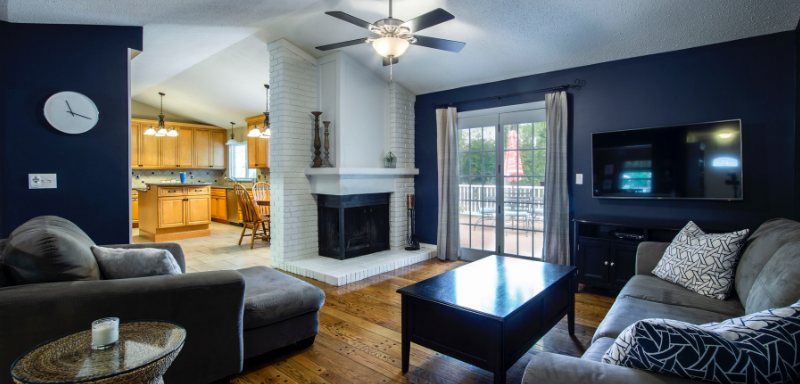Flip it or Rent it? Guru Video Reviews
You’ve done your research. After reading books and blogs, attending networking events, and running some numbers, you’ve decided its time to get started. You start looking at properties, come across one that seems to fit your parameters, and then you ask yourself…
Should I flip it or rent it?
The answer isn’t always simple, and not everyone has the same opinion. We scoured YouTube for some popular videos about renting versus flipping to see what others were saying and gather their advice. These seasoned investors share:
- The benefits of each strategy,
- When each strategy should be used, and
- How to decide which is right for you.
Each investor’s opinion has similarities, but they definitely have some differences too.
Check out what to look for and how to answer the question of whether to flip or rent.
Paul explains the TRUTH behind how much you make in rentals versus flips…
Rental Property Vs Flipping (The Truth)
Paul began thinking about this question when he analyzed a current property of his and determined that it will take 7 years to make money back on his investment rental property. However, with a flip, he could have had a return on his investment in just a couple months.
According to Paul, the short answer to the question of whether to flip or rent is…
It depends.
The best thing to do when considering whether or not to Flip versus Rent is to answer the following questions:
- What are your goals?
- Do you have a long-term vision?
- What resources do you have available to you now?
Brandon from Bigger Pockets Responds to the Flip Versus Rent Question as it Relates to New Investors
Should I Flip Houses or Buy Rental Properties? [#AskBP 067]
In this video, Brandon answers a common question from Bigger Pockets forums. Like Paul, he says the first question you need to answer is:
What is your goal?
If you’re trying to quit your job, chances are that rental properties will not get you there quickly. If you want to quit your job in 10 years, then rentals might be the way to go.
Flipping houses is a faster way to make money. According to Brandon, flipping houses is more of a business than just an investment. Flipping houses is not a passive investment. If you put money in—you get money out. Stop working on it, and stop making money.
If you interested in flipping, there are several things to consider:
- Can you manage contractors?
- Do you have enough free time on your hands?
- Are you confident with crunching numbers?
- Will you be proactive about lining up projects?
If quitting you job next week isn’t your reality and you are in it for the long-term, rental properties might be your thing. Consider this:
- How proactive are you with finding deals?
- Are you prepared to manage the rehab?
- Are you equipped to manage tenants or property managers?
You can do both types of investing—many people use profits from their flips to purchase rentals—but the best strategy is to learn how to do ONE thing really well before moving on to the other.
Heritage Funding Shows Examples of Flips and Rentals They’ve Actually Done, and How to Weigh Your Options
Flipping Real Estate vs. Owning Rental Properties. Is it better to Flip Houses?
According to Heritage Funding, rental properties are great because of the monthly cashflow from your investment.
With flipping properties, you get a quicker profit in one lump sum, but no monthly dividends.
Those who own rental properties typically hold on to them for many years, paying for their investment several times over. Flipping is just the opposite, but you can also turn your money much faster.
Heritage Funding concludes that if you need cashflow…you should rent. If you have minimal cash and need to build up your funds, you should flip.
Question answered… Where should you get started and how soon?
FLIPPING VS. RENTALS- where should you start in real estate?
Assessing rentals versus flips is best decided by looking at these 4 categories:
- Risk
- Return
- Money required
- Time required
#1 Risk
Rentals are less risky than fix and flips because you have tenants paying you every month covering the mortgage and taxes. Rental properties also require far less rehabbing than flips. Since you’re dealing with mostly cosmetic updates like paint and carpet there is less room for surprises.
If you flip houses you might have to make monthly payments to your investor and without a tenant you’re making those payments on your own. Usually you’re buying distressed properties that need work and there can often be surprises during the rehab process.
However, with more risk comes more reward…
#2 Return
In the illustration provided in the video, the speaker says its pretty easy for him to make a 12% return on a rental property if he pays all cash. If he leverages his money, he can make 20% return on a flip, adding up to 40%-60% if he does 2-3 flips per year. If you’re able to leverage your money the same way described in the video, then flipping is the more lucrative option in the short-term.
#3 Money Required
According to the video, flipping is easier to do with ZERO of your own money down. Many investors are willing to lend knowing they will make a return on their investment in the short term. Rentals usually require your own cash and credit.
#4 Time Required
Rentals require a lot less of your own time invested. More often than not, you’ll buy the property from a wholesaler, work with a contractor to do minor repairs, and ideally work with a property management company to find and manage tenants. Flipping properties requires much more time. It can quickly become a full time job, but it’s still possible to flip properties part time while keeping a day job.
In summary, according to this video: Rentals are safer, truly passive, and easier to find. However, flips result in more returns in the short-term, and its easier to acquire them with no money down by sharing profits with an investor or securing private money.
Clint Debates the Profitability of Flips Versus Rentals
Flip vs. Hold in Real Estate Investing With Thoughts from Warren Buffett on Management and Leverage
This video briefly breaks down the difference between flipping and holding real estate, and shares a great clip from Warren Buffett on leverage and property management when considering holding residential real estate.
The biggest difference between flips and rentals, is that its easy to make cash flipping properties…but Clint argues that truly successful, long-term investors usually develop a rental portfolio.
Matt Discusses Where to Find Rents and Where to Find Flips—Location Location Location!
Where to Rent and Where to Flip – MM006
Matt begins the video by describing the different types of neighborhoods that exist, arguing that your investment strategy determines where you should be looking for investment properties (or, that the location of the investment property plays a big role in choosing the right strategy). They are Class A, B, C, and D neighborhoods.
Class A neighborhoods are high end areas with high priced real estate and lots of homeowners. These areas don’t make great rental areas, but they are great for flips.
Class B neighborhoods are more white collar, and do have some rentals (about 70% ownership to 30% rentals). Most of the rentals in these neighborhoods were foreclosed on and converted into rentals.
Class C neighborhoods are blue collar working class areas. These neighborhood have more apartments and multi-family units, are often located near major thoroughfares., and have a lot more starter homes that Classes A and B. Renters to homeowners are probably a 50/50 ratio.
Class D areas are lower end. There are usually higher crime rates in these areas with a high ratio of renters.
Matt’s main point in the video is that real estate works in all neighborhood—but not every property will work for any investment strategy.
Get started
Now that you know what to look for and some of the questions to ask, get started!
Here’s some homework: look through some properties in your market area. Using some of the tips from these videos, evaluate whether the property would make a better rental or flip, and then run the numbers!
We have some other resources that might also help:
- An Introductory Guide to Flipping Houses
- Landlord Guide to Rental Property
- 3 Best Methods to Pull Comps and Calculate ARV
Good luck!






